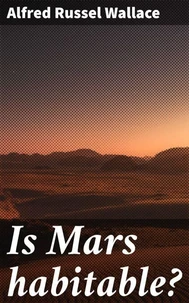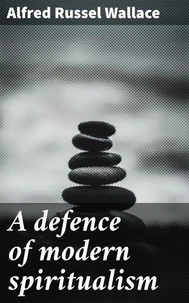Vaccination a Delusion: Its Penal Enforcement a Crime. Proved by the Official Evidence in the Reports of the Royal Commission
Par :Formats :
Disponible dans votre compte client Decitre ou Furet du Nord dès validation de votre commande. Le format ePub est :
- Compatible avec une lecture sur My Vivlio (smartphone, tablette, ordinateur)
- Compatible avec une lecture sur liseuses Vivlio
- Pour les liseuses autres que Vivlio, vous devez utiliser le logiciel Adobe Digital Edition. Non compatible avec la lecture sur les liseuses Kindle, Remarkable et Sony
 , qui est-ce ?
, qui est-ce ?Notre partenaire de plateforme de lecture numérique où vous retrouverez l'ensemble de vos ebooks gratuitement
Pour en savoir plus sur nos ebooks, consultez notre aide en ligne ici
- Nombre de pages93
- FormatePub
- ISBN859-65--4702679-2
- EAN8596547026792
- Date de parution29/05/2022
- Protection num.Digital Watermarking
- Taille1 Mo
- Infos supplémentairesepub
- ÉditeurDIGICAT
Résumé
In "Vaccination a Delusion: Its Penal Enforcement a Crime, " Alfred Russel Wallace meticulously critiques the practice and policy of mandatory vaccination in Victorian England. Employing a combination of empirical evidence and philosophical reasoning, Wallace articulates his belief that enforced vaccination may be more detrimental than beneficial. His literary style blends persuasive rhetoric with scientific inquiry, reflecting a broader discourse during his time which questioned authority and the intersection of science and morality.
Wallace's text is not only a manifesto against compulsion in healthcare but also an important sociocultural commentary amidst burgeoning debates on individual rights and public health. Alfred Russel Wallace, renowned as a naturalist and co-discoverer of the theory of evolution by natural selection alongside Charles Darwin, was deeply influenced by his experiences with the inadequacies of the medical system, particularly during the smallpox epidemic.
Wallace's commitment to social reform, informed by his scientific rigor and advocacy for civil liberties, permeates this work. His dedication to rational discourse reflects the intellectual climate of the late 19th century, where science was increasingly scrutinized and challenged by emerging social movements. "Vaccination a Delusion" invites readers to reconsider the ethics surrounding medical mandates and governmental authority, urging a critical examination of public health policies.
Whether you are a historian, a medical professional, or simply a concerned citizen, this book prompts profound reflections on autonomy, community welfare, and the implications of science in society.
Wallace's text is not only a manifesto against compulsion in healthcare but also an important sociocultural commentary amidst burgeoning debates on individual rights and public health. Alfred Russel Wallace, renowned as a naturalist and co-discoverer of the theory of evolution by natural selection alongside Charles Darwin, was deeply influenced by his experiences with the inadequacies of the medical system, particularly during the smallpox epidemic.
Wallace's commitment to social reform, informed by his scientific rigor and advocacy for civil liberties, permeates this work. His dedication to rational discourse reflects the intellectual climate of the late 19th century, where science was increasingly scrutinized and challenged by emerging social movements. "Vaccination a Delusion" invites readers to reconsider the ethics surrounding medical mandates and governmental authority, urging a critical examination of public health policies.
Whether you are a historian, a medical professional, or simply a concerned citizen, this book prompts profound reflections on autonomy, community welfare, and the implications of science in society.
In "Vaccination a Delusion: Its Penal Enforcement a Crime, " Alfred Russel Wallace meticulously critiques the practice and policy of mandatory vaccination in Victorian England. Employing a combination of empirical evidence and philosophical reasoning, Wallace articulates his belief that enforced vaccination may be more detrimental than beneficial. His literary style blends persuasive rhetoric with scientific inquiry, reflecting a broader discourse during his time which questioned authority and the intersection of science and morality.
Wallace's text is not only a manifesto against compulsion in healthcare but also an important sociocultural commentary amidst burgeoning debates on individual rights and public health. Alfred Russel Wallace, renowned as a naturalist and co-discoverer of the theory of evolution by natural selection alongside Charles Darwin, was deeply influenced by his experiences with the inadequacies of the medical system, particularly during the smallpox epidemic.
Wallace's commitment to social reform, informed by his scientific rigor and advocacy for civil liberties, permeates this work. His dedication to rational discourse reflects the intellectual climate of the late 19th century, where science was increasingly scrutinized and challenged by emerging social movements. "Vaccination a Delusion" invites readers to reconsider the ethics surrounding medical mandates and governmental authority, urging a critical examination of public health policies.
Whether you are a historian, a medical professional, or simply a concerned citizen, this book prompts profound reflections on autonomy, community welfare, and the implications of science in society.
Wallace's text is not only a manifesto against compulsion in healthcare but also an important sociocultural commentary amidst burgeoning debates on individual rights and public health. Alfred Russel Wallace, renowned as a naturalist and co-discoverer of the theory of evolution by natural selection alongside Charles Darwin, was deeply influenced by his experiences with the inadequacies of the medical system, particularly during the smallpox epidemic.
Wallace's commitment to social reform, informed by his scientific rigor and advocacy for civil liberties, permeates this work. His dedication to rational discourse reflects the intellectual climate of the late 19th century, where science was increasingly scrutinized and challenged by emerging social movements. "Vaccination a Delusion" invites readers to reconsider the ethics surrounding medical mandates and governmental authority, urging a critical examination of public health policies.
Whether you are a historian, a medical professional, or simply a concerned citizen, this book prompts profound reflections on autonomy, community welfare, and the implications of science in society.







